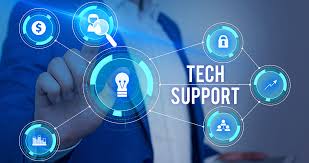Discussing the benefits of Social media and its drawbacks
Benefits of Social media is to connect people globally, raise awareness on important issues, and provide opportunities for personal growth.

In today's digital age, it's impossible to ignore the benefits of social media on our lives. Whether we're scrolling through our Instagram feeds, tweeting our thoughts, or connecting with friends on Facebook, social media has become an integral part of how we communicate and interact with the world.
But like any powerful tool, social media comes with both benefits and drawbacks. In this blog post, we'll explore the positive aspects of social media as well as its potential downsides, aiming to provide a balanced perspective on this ubiquitous phenomenon.
Benefits of Social Media
- Global Connectivity: One of the most significant advantages of social media is its ability to connect people from all corners of the globe. Regardless of geographical barriers, individuals can engage in meaningful conversations, share experiences, and foster connections with people they would never have had the chance to meet otherwise. This global reach has opened up new avenues for cross-cultural understanding and collaboration.
- Information Dissemination: Social media serves as a real-time news source, allowing users to stay updated on current events, trends, and developments around the world. Platforms like Twitter have become indispensable tools for journalists, enabling them to report on breaking news and share vital information with a broad audience instantly.
- Networking Opportunities: Professionals and businesses have harnessed social media to expand their networks and promote their brands. Platforms like LinkedIn provide a space for job seekers to connect with potential employers, while companies can reach out to a vast pool of talent. Businesses also use platforms like Instagram and Facebook to market their products and engage with customers on a personal level.
- Educational Resources: Social media is a treasure trove of educational content. Platforms like YouTube host countless tutorials on various subjects, while educational institutions and experts use platforms like Facebook and Twitter to share knowledge and engage with students and learners. The democratization of information has never been more accessible.
- Activism and Social Change: Social media has played a pivotal role in advancing social and political causes. Movements like #BlackLivesMatter and #MeToo gained momentum through online platforms, allowing marginalized voices to be heard and fostering greater awareness and change.
- Creativity and Expression: Social media empowers individuals to express their creativity and talents. Visual artists, writers, musicians, and other creatives can showcase their work to a global audience, receive feedback, and build a fan base. This democratization of creativity has allowed many talented individuals to gain recognition and success.
Drawbacks of Social Media
- Privacy Concerns: One of the most significant drawbacks of social media is the erosion of personal privacy. Users often share personal information, and their online activities are tracked for advertising purposes. Privacy breaches and data leaks have become all too common, raising concerns about the security of personal information.
- Mental Health Issues: Excessive use of social media has been linked to various mental health issues, including anxiety, depression, and feelings of inadequacy. The constant comparison to others' seemingly perfect lives and the pressure to curate an ideal online persona can take a toll on individuals' self-esteem and well-being.
- Cyberbullying: The anonymity afforded by social media can embolden individuals to engage in cyberbullying and harassment. Victims of online abuse often suffer emotional distress, and in severe cases, it can lead to tragic consequences. Social media platforms must work diligently to combat this issue.
- Echo Chambers and Polarization: Social media algorithms often curate content based on users' preferences and beliefs, creating echo chambers where people are exposed to information that reinforces their existing views. This can lead to increased polarization and a lack of constructive dialogue between different ideological groups.
- Addiction: Social media platforms are designed to be addictive, with endless scrolling and notifications triggering dopamine releases in the brain. This addiction can result in decreased productivity, disrupted sleep patterns, and a diminished quality of life.
- Misinformation and Fake News: The rapid spread of misinformation and fake news on social media poses a significant societal challenge. False information can go viral, leading to real-world consequences, such as public health crises or political unrest. Platforms are continually working on improving content moderation, but the battle against misinformation is ongoing.
Striking a Balance
While social media undoubtedly offers numerous benefits, it is essential to approach it with caution and mindfulness. Striking a balance between reaping the rewards and avoiding the pitfalls requires self-awareness and responsible usage. Here are some tips for harnessing the power of social media while mitigating its drawbacks:
- Manage Your Privacy: Review your privacy settings on social media platforms and be selective about the information you share. Consider what personal data you're comfortable with sharing publicly and what should remain private.
- Mindful Consumption: Be mindful of the content you consume on social media. Unfollow accounts that make you feel anxious or inadequate, and curate your feed to include content that aligns with your interests and values.
- Digital Detox: Take regular breaks from social media to disconnect and recharge. Set boundaries for screen time and avoid using social media before bedtime to improve your sleep quality.
- Fact-Checking: Before sharing information, take a moment to verify its accuracy. Be a responsible consumer and sharer of information, helping to combat the spread of misinformation.
- Report Harmful Content: If you encounter cyberbullying or harmful content, report it to the platform and support those affected by offering kindness and empathy.
- Engage Thoughtfully: When engaging in online discussions, strive for respectful and constructive dialogue, even when encountering differing viewpoints. Avoid personal attacks and seek common ground.
In conclusion, social media is a double-edged sword, offering both tremendous benefits and significant drawbacks. It has the power to connect people, disseminate information, and drive positive change, but it can also harm privacy, mental health, and society at large.
To harness the full potential of social media, it's crucial to use it mindfully, responsibly, and in moderation. By striking a balance, we can make the most of this digital tool while mitigating its potential harms.
What's Your Reaction?















